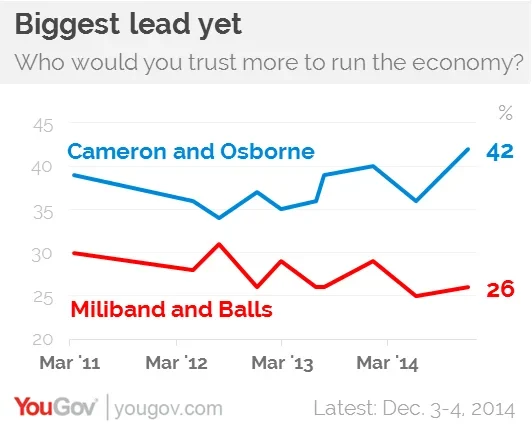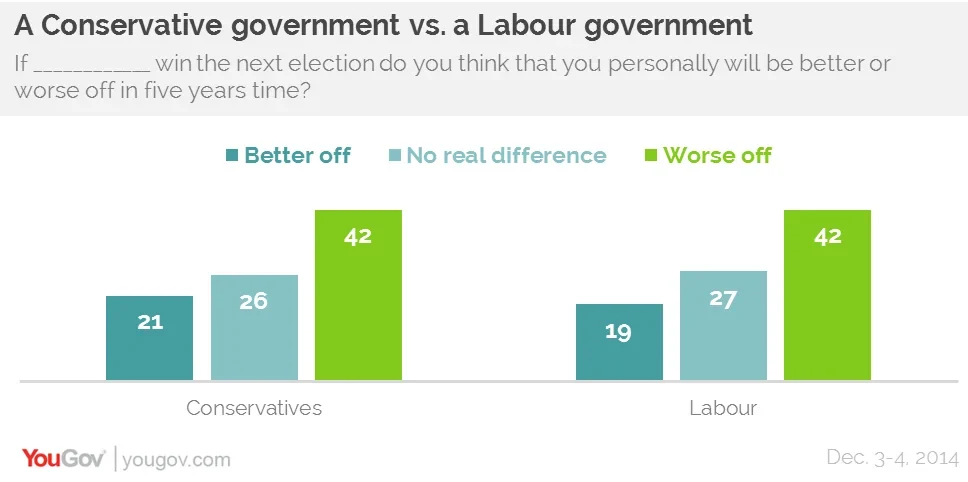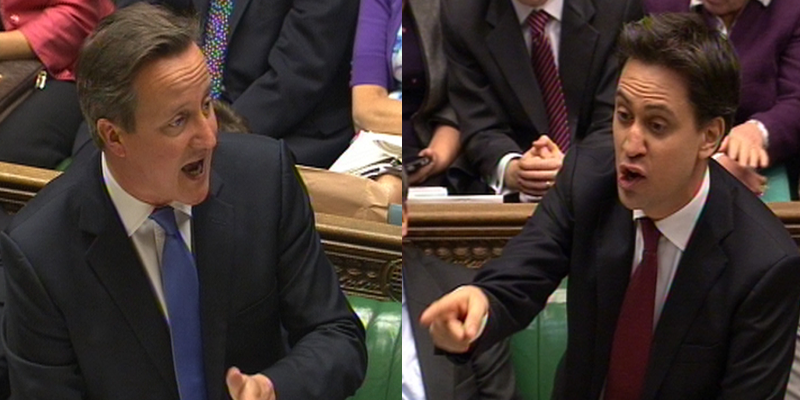Hint: neither David Cameron nor Ed Miliband is the victor
The blame game resumed in earnest last week, with the Autumn Statement. As usual, George Osborne blamed Labour for leaving behind a mess that he has had to clear up. As usual Ed Balls blamed the Government for failing to raise living standards and missing its targets on reducing the deficit.
YouGov surveys in the past few days suggest that neither side is winning the blame game.
- More people still blame Labour (36%) than the coalition (27%) for public spending cuts – figures which gave barely shifted throughout this parliament.
- On the other hand, more people blame the coalition (35%) than Labour (22%) for living standards not rising in recent years.
- On the failure to meet deficit-reduction targets, the gap is narrow, with slightly more people blaming the government’s actions (30%) than the legacy of the last Labour government (26%).
- On the separate issue of immigration, more people again blame the coalition (25%) than Labour (18%) for the government missing its targets for reducing the numbers coming to Britain.
It’s worth noting that, whoever is ahead or behind on each of those four issues, none of the figures climbs above 36%. This is because, each time, around one in four voters blame both equally. As in the trenches for much of World War 1, this is a battle of attrition in which neither side has broken through.
Labour has more cause than the Conservatives to be downcast. The coalition has been in office for more than four-and-a-half years. Normally, by this time in a government’s life, things that go wrong are laid at the door of ministers, not their opposition rivals. Labour had no realistic hope of escaping the blame for its record in office for, say, the first year or two after it lost office. But by now, public attitudes should have changed. They haven’t.

The news for Labour is no better when we ask voters to look forward rather than back. When voters are asked who they trust more to run the economy, Cameron and Osborne (42%) comfortably outscore Miliband and Balls (26%). This 16-point gap is the widest we have ever found. On handling the deficit, the gulf is even wider: 41-22%.
What, though, about living standards? Labour hopes that it can win votes by pointing to the contrast between the figures for gross domestic product, which are now showing a steady increase, and those for living standards, which don’t. Miliband and Balls seek to persuade voters that their taxing and spending decisions would being greater social justice to Britain, and so ensure that most people are able to enjoy fair their share of the fruits of recovery.
Our latest figures provide no encouragement for the two Eds. We asked people if they thought that they, personally, would be better or worse off in five years’ time, (a) if the Conservatives win next year’s election and (b) if Labour wins. Here are the figures:

Statistically, that’s a dead heat, with twice as many pessimists as optimists, whoever wins.
These figures help to explain why Ukip, the Greens and SNP have been gaining ground this year. The more Labour and Tory politicians snarl at each other for their past mistakes, the more voters distrust both – and the more they sign up to the narrative that Britain has been going to the dogs for many years and looks destined to continue doing so.
That is a large part of the reason why the Conservatives have been unable to translate their lead over Labour on the economy into a clear lead in voting intention. Stuck in a never-ending spat over why things are so bad, neither party has been able to convince voters that they can make things better any time soon. So far, the biggest winner of the blame game has been neither David Cameron nor Ed Miliband. It has been Nigel Farage.









